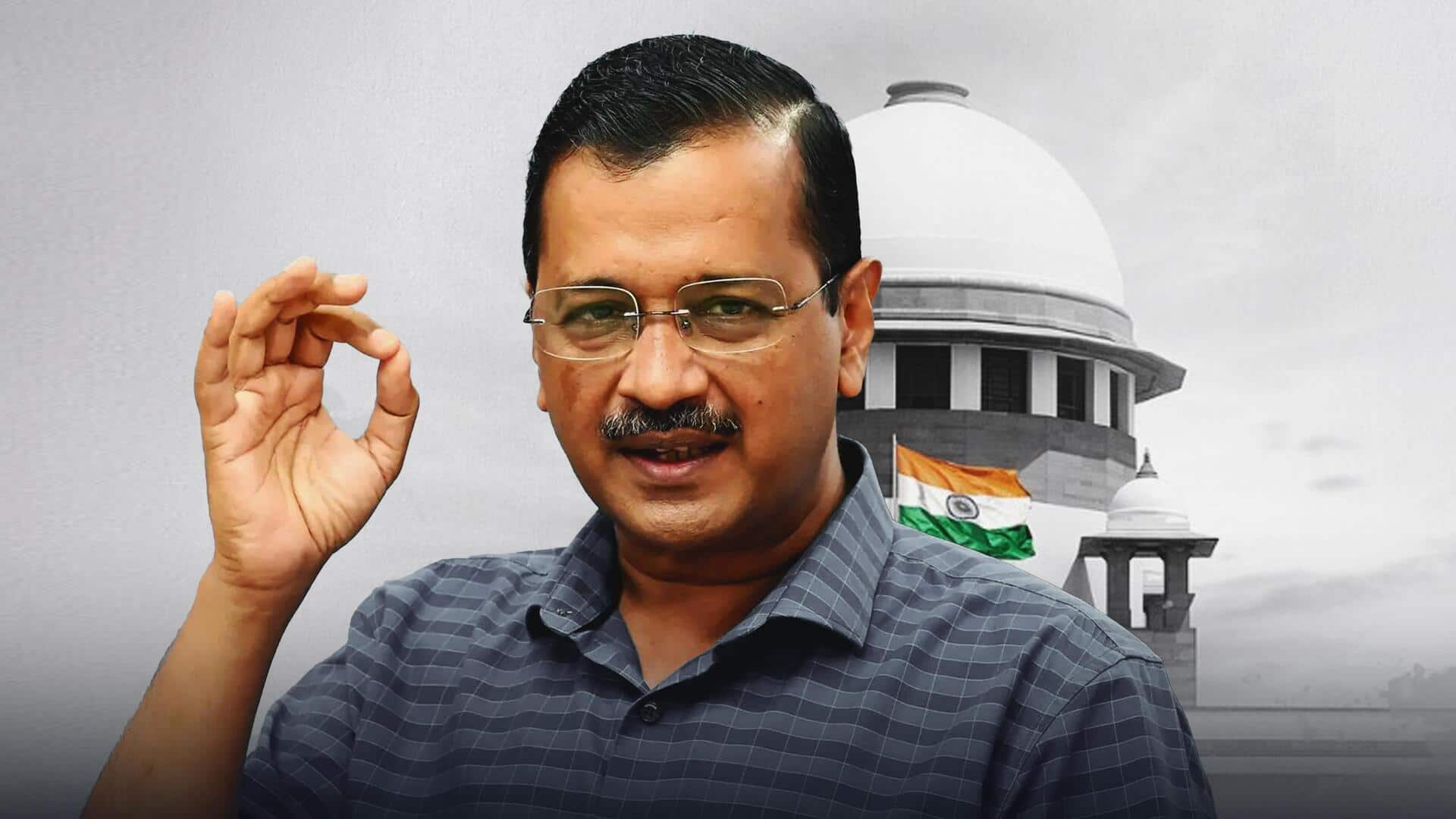
Excise policy case: Kejriwal gets bail after six months
What's the story
The Supreme Court on Friday granted bail to Delhi Chief Minister Arvind Kejriwal in the excise policy case.
To recall, the court reserved its decision on September 5 after hearing arguments from Kejriwal's counsel and the Central Bureau of Investigation.
Notably, this ruling will result in the release of Kejriwal nearly six months after his initial arrest by the Enforcement Directorate (ED) in March.
Context
Why does this story matter?
In July, the Delhi CM had secured bail for his arrest by the ED on March 21, 2024.
However, he couldn't leave the jail as expected, since the CBI had arrested him on June 26 after the ED withdrew its challenge.
Both arrests are related to a money laundering case linked to the now-scrapped excise policy.
Court proceedings
'Bail is the rule...': Justice Bhuyan's observation
In a brief session, the two-judge bench of Justice Ujjal Bhuyan and Justice Surya Kant delivered separate verdicts on Kejriwal's pleas.
Justice Ujjal Bhuyan observed, "The CBI's arrest was perhaps only to frustrate...grant of bail to Kejriwal in the ED case."
"Bail is the rule...jail an exception. All courts must ensure...process of trial doesn't become a form of punishment in itself," Justice Bhuyan added.
CBI arrest
Judges differing views on legality of arrest
Kejriwal had filed two separate petitions one seeking bail and the other challenging his arrest by the CBI.
On his arrest by the CBI, the two judges had differing views.
Justice Kant found no issue with arresting someone already in custody, saying, "no impediment in arresting person already in custody," and saw no merit in the claim that the agency didn't follow the law.
Differing views
What Justice Bhuyan said on CBI's timing
Conversely, Justice Bhuyan questioned the CBI's timing, noting, "It appears (that) only after trial court granted regular bail in ED case that CBI became active and sought custody. It didn't feel need to arrest for over 22 months."
Nonetheless, the two agreed that the CBI could not justify keeping Kejriwal in jail for nearly six months.
Bail conditions
Bail conditions set for Kejriwal
It is important to note that Kejriwal's bail conditions include prohibitions on visiting the Chief Minister's Office or Delhi Secretariat, and signing government files without permission from Lieutenant Governor VK Saxena.
He must also provide a bail bond and surety of ₹50,000 each, and is restricted from making statements about the case or contacting witnesses.
Excise policy case
Other leaders out on bail
After Friday's ruling, Kejriwal has become the fifth, and most prominent, opposition leader to be released after arrest in this case.
Others freed include his former deputy Manish Sisodia, AAP MP Sanjay Singh, and Bharat Rashtra Samithi leader K Kavitha.
The Supreme Court, which ordered the release of the three, said that authorities cannot detain accused individuals indefinitely without trial.